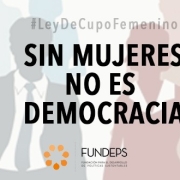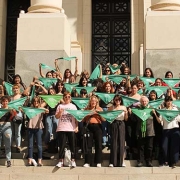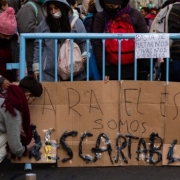New international agreement on violence and harassment at work
The OIT is an agency of the United Nations (UN) that brings together governments, employers and workers of 187 member states, to establish international labor standards. Within the framework of its 108th meeting in the city of Geneva in the month of June of this year, an agreement was approved (with 439 votes in favor, 7 against, 30 abstentions) and its respective recommendation (with 397 votes in favor , 12 against and 44 abstentions), on the elimination of violence and harassment in the world of work, which materialize proposals related to the topic.
“Below, we offer a google translate version of the original article in Spanish. This translation may not be accurate but serves as a general presentation of the article. For more accurate information, please switch to the Spanish version of the website. In addition, feel free to directly contact in English the person mentioned at the bottom of this article with regards to this topic”.
The issue takes on special relevance in our country since, according to this entity: “France, Argentina, Romania, Canada and England have indicated the highest rates of sexual harassment and assault in the workplace, (…), based in the largest global study that has been done so far on violence at work. “
The particularity of this agreement is that, in its content, it deals with the theme with an inclusive, integrated and gender perspective approach that is embodied in norms that imply a transcendental socio-cultural advance towards the protection of women and other groups. vulnerable (art.6), disproportionately affected by preventing their access to the market, permanence or professional progress.
This agreement would have a projection in the formal and informal work, public and private, regardless of their contractual situation. Through its rules it defines and distinguishes “violence and harassment” (Article 1 a) of “violence and harassment based on gender” (Article 1 b), leaving open the possibility for ratifying countries to contemplate them in their national legislations as unique or separate concepts; and understands that they can constitute “a violation or abuse of human rights, a threat to equal opportunities and contrary to decent work”.
The text provides that member countries should establish mechanisms for registration, control and monitoring of violence and harassment in the world of work, and that national bodies responsible for labor inspection, safety and health in this field should consider them as psychosocial risks in its management It also establishes the obligations of adoption and application of workplace policies related to violence and harassment, information and training on the subject, and even contemplates sanctions against perpetrators and compensation for victims for the damages and / or psychosocial, physical illnesses. or of any other type that are consequences of such acts. In a novel and positive way, through this normative proposal domestic violence is contemplated within the workplace and determines an obligation to mitigate its impact and even to evaluate it as a risk in the workplace.
However, despite the progress it represents, the text standardizes forms of violence and harassment, and affected groups. Mainly by establishing and leaving the concept of “vulnerable groups” undefined; without contemplating the diversity of the victims, of violence and harassment, hindering a true solution to the conflict.
The agreement is open and awaiting ratification by the member countries and will be an international legally binding instrument once ratified by our country, with a supralegal or constitutional hierarchy, after the approval of the National Legislative Power.
It is an opportunity to assume a genuine commitment to equal rights, based on positive actions that allow regulation and reform of situations of violence and harassment in the world of work, once it is effectively translated into concrete public policies and not mere empty commitments (purplewashing).
A better future of work for women and vulnerable groups can only be achieved by ending discrimination and overcoming entrenched stereotypes in relation to women in society, the value of their work and their position in the labor market. This future will be possible not only with the protection of women and vulnerable groups against violence, but with actions that simultaneously aim to achieve equality at work, access to social services and equal care services, and participation and representation of women in internal structures such as unions and trade unions.
Author
Luz Baretta
Contact
Cecilia Bustos Moreschi, cecilia.bustos.moreschi@fundeps.org







